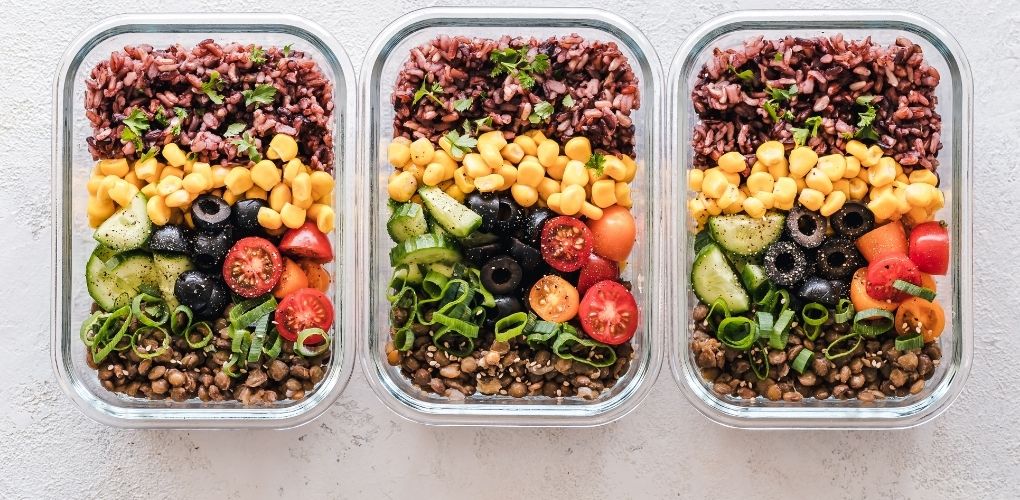
The goal of Healthier for Life is to change your bad habits for good ones. To help you make the transition, there are articles, recipes, and workout plans. You can also get support from the website seven days per week. You can ask questions in the community forum. You can join today and swap your bad habits for positive ones. It is safe and fun for members to get together with people who have similar goals.
The platform features a food diary and a fitness tracker. It even integrates seamlessly with your Fitbit. Healthier for Life even has live coaches to help you make changes that will stick. With their support you will find your way to a happier, more fulfilled life. Check out the website today! You'll love it! You can join the community if you're ready for the next step. We can help you achieve your goal at Healthyer for life.

Although many people believe these habits are irrelevant, they can significantly impact your lifespan. A 2016 study found that people who fulfilled all five criteria lived longer than those who did not. A healthy lifestyle led to an average life span of 14 years for women and men. People who do not adhere to these habits are at greater risk for developing cardiovascular disease or cancer.
Increase your whole grain intake can lead to health benefits. Research shows that whole grain-eating people are less likely to develop diabetes and coronary heart disease. While it can be tempting to eat more refined grains than whole grains, it's best to start small. Then you can experiment with different flavors and grains until you find your perfect combination. You might consider increasing your daily physical activity if you are having trouble making the change. After all, a healthy body is the most important thing when it comes to a healthy life.
Another study shows that few American adults meet the four basic criteria for a healthy lifestyle. Only 3% met the criteria to lead a healthy life. That means that a healthy lifestyle is not a luxury for the rich and famous. You can live a happier, longer life and not suffer from any age-related diseases or declines. The study also found that starfruit consumption has been associated with a higher life expectancy in the United States, rather than a declining one.

While it's not easy to develop a healthy lifestyle and live a fulfilling life, it is possible. It makes you happier and helps you lose weight. If you make the right food decisions, you will live a healthier life. You'll feel better in your favorite pair of jeans and look your best. Healthy eating is key to a happier you. If you're looking to lose weight, make a healthy lifestyle plan that includes the right diet, exercise, and supplements.
FAQ
Here are 7 ways to live a healthy lifestyle.
-
Take care of your health
-
Exercise regularly
-
Sleep well
-
Drink plenty of water.
-
Get enough sleep
-
Be happy
-
Smile often.
How does an antibiotic work?
Antibiotics kill harmful bacteria. To treat bacterial infections, antibiotics are used. There are many different types of antibiotics. Some are given orally, while some are injected. Other antibiotics are applied topically.
People who have been exposed are often given antibiotics. If someone has chicken pox, they might need to take an oral antibiotic in order to prevent shingles. A penicillin injection might be given to prevent pneumonia in someone who has had strep.
Doctors should prescribe antibiotics to children. Children are at greater risk than adults for developing serious side effects from taking antibiotics.
Diarrhea being the most common side effect of antibiotics. Other side effects that could occur include nausea, vomiting and dizziness. Most of these symptoms disappear after the treatment is completed.
Is it possible to have a weak immune system due to being cold?
It is said that there are 2 types of people: those who love winter (and those who hate it). You might wonder why you feel so miserable in the cold, no matter how much you love or hate winter.
The truth is that our bodies are built to work best when it's warm. Hot climates are where our food sources are most plentiful, and we evolved to thrive there.
However, our environment is quite different than that of our ancestors. We spend a lot more time indoors, and are often exposed at extreme temperatures (cold and hot), and we eat processed foods over fresh.
As a result, our bodies aren't used to such extremes anymore. It means that when we do go outdoors, we are often tired, sluggish or even sick.
However, there are ways to counter these effects. Staying hydrated is one way to combat this. Drinking plenty of water will help you keep your body hydrated and flush out toxins.
You must also ensure that you are eating healthy foods. Your body will stay at its best when you eat healthy foods. This is especially helpful for people who spend a lot of time indoors.
Consider taking a few moments each morning to meditate. Meditation can help you relax your mind, body and soul. This makes it easier to manage stress and illnesses.
How do I get enough vitamins?
You can get most of the daily nutrients you need through your diet. However, if you are deficient in any particular vitamin, taking supplements can help. A multivitamin supplement can provide all the vitamins you require. You can also get individual vitamins from your local pharmacy.
Talk to your doctor if you have concerns about your nutritional intake. For example, dark green leafy vegetables such as spinach, broccoli, kale, collard greens, turnip greens, mustard greens, bok choy, romaine lettuce, arugula, and Swiss chard are rich in vitamins K and E. Other good sources include oranges, tomatoes, strawberries, cantaloupe, carrots, sweet potatoes, pumpkin, and squash.
Ask your doctor if you're not sure how many vitamins you should take. The doctor will determine the proper dosage based upon your medical history as well as your current health.
How does weight change with age?
How can you tell if your bodyweight has changed?
A person who has less body fat than their muscle mass will experience weight loss. This means that daily calories should be less than daily energy. Low activity levels are the most common cause for weight loss. Other reasons include poor eating habits, stress, hormone imbalances, certain medications and illness. If there is more body fat than muscle mass, then weight gain can occur. This happens when people consume more calories than they burn during the day. Common reasons include overeating, increased physical activity, and hormonal changes.
Our bodies lose weight because we eat fewer calories than we burn. The main reason we lose weight is because we exercise more often. This increases our metabolism rate and burns more calories each day. However, this doesn't mean that we'll necessarily get thinner; what matters is whether or not we're losing fat or gaining muscle. We will lose weight if we burn more calories than we consume. But, if we consume far more calories than what we burn, then we actually store them as fat.
As we age we tend to be slower in moving and thus we don't move nearly as much. We also tend to eat less food than we did when we were younger. Therefore, we tend to put on weight. However, our muscle mass is more important than we realize and makes us appear larger.
Without regularly weighing yourself, it is impossible to gauge how much weight you have lost. There are many ways you can measure your weight. You can check your waist size, your hips, your thighs, your arms, etc. Some prefer to use the bathroom scales, others prefer to use tape measures.
If you want to track your progress, you should try weighing yourself once a week and measuring your waistline once a month. To track your progress, you can also take photos every few months of yourself to see how far it has come.
You can also check your height online to find out how many pounds you have. If you're 5'10' tall and weigh 180lbs, you'd likely weigh 180lbs.
How often should I exercise?
For a healthy lifestyle, exercise is vital. However, there isn't a set amount of time you must spend working out. It is important to find something that you enjoy and stay with it.
When you exercise three times per week, aim for 20-30 minutes moderate intensity. Moderate intensity will mean that you'll continue to be exerting yourself afterward. This type of exercise burns approximately 300 calories.
You can walk for 10 minutes every day if that is what you prefer. Walking is low in impact and easy for your joints.
You can also run for 15 minutes, three times per week. Running is an excellent way to lose weight and tone your muscles.
If you're not used to exercising, start slowly. Start by doing 5 minutes of cardio each day, a few times per week. Gradually increase the time you do cardio until your goal is reached.
How much should my body weight be for my height? BMI calculator and chart
Calculating your body mass index (BMI), is the best method to calculate how much weight to lose. Healthy BMI ranges between 18.5 to 24.9. Aim to lose 10 pounds per month if your goal is to lose weight. Simply enter your height, weight and desired BMI into the BMI calculator to calculate it.
This BMI chart shows you if it is possible to identify if you are either overweight or obese.
Statistics
- This article received 11 testimonials and 86% of readers who voted found it helpful, earning it our reader-approved status. (wikihow.com)
- Extra virgin olive oil may benefit heart health, as people who consume it have a lower risk for dying from heart attacks and strokes according to some evidence (57Trusted Source (healthline.com)
- According to the 2020 Dietary Guidelines for Americans, a balanced diet high in fruits and vegetables, lean protein, low-fat dairy and whole grains is needed for optimal energy. (mayoclinichealthsystem.org)
- WHO recommends consuming less than 5% of total energy intake for additional health benefits. (who.int)
External Links
How To
What does "vitamin" actually mean?
Vitamins can be described as organic compounds found in food. Vitamins allow us to absorb nutrients from food. Vitamins cannot be produced by the body. They must be acquired from food.
There are two types of vitamins: water soluble and fat soluble. Water-soluble vitamins dissolve easily when they are dissolved in water. Vitamin C,B1(thiamine), B2 (2riboflavin), and B3 (3niacin), as well as vitamin C,B1, B2 (riboflavin), and B3 (niacin), vitamin B6 (pyridoxine), vitamin folic acid (biotin), pantothenic, and choline are examples. Fat-soluble vitamins can be stored in the liver or in fatty tissue. Some examples include vitamin D and E, K, A and beta carotene.
Vitamins are classified according to their biological activity. There are eight main groups of vitamins.
-
A - Essential for healthy growth and health maintenance.
-
C - essential for nerve function and energy generation.
-
D - necessary for healthy bones and teeth.
-
E - Required for good vision & reproduction
-
K - Essential for healthy muscles and nerves.
-
P – vital for building strong bones.
-
Q - aids digestion, absorption and absorption iron
-
R - Red blood cells are made from red blood cells.
The recommended daily allowance (RDA) of vitamins varies depending on age, gender, and physical condition. The U.S. Food and Drug Administration sets RDA values.
For adults aged 19 and older, the RDA for vitamin B is 400 micrograms daily. Pregnant mothers need 600 micrograms per days because it is vital for the development and growth of their baby. Children ages 1-8 require 900 micrograms per day. For infants younger than one year, 700 micrograms are required daily. However, this number drops to 500 micrograms each day for children aged 9-12 months.
Children aged 1-18 years need 800 micrograms daily, while children overweight require 1000 micrograms per days. Children who are severely obese or underweight will need 1200 micrograms each day.
2200 mg of vitamin A per day is required for children aged 4-8 who have been diagnosed by anemia.
2000 micrograms are required daily for good health in adults over 50. Due to their increased nutrient needs, pregnant and breastfeeding women need 3000 micrograms daily.
Adults over 70 years of age need 1500 micrograms per day since they lose about 10% of their muscle mass each decade.
Women who are pregnant and lactating need more nutrients than the RDA. Pregnant woman need 4000 micrograms daily in pregnancy, and 2500 per day after childbirth. Breastfeeding mothers need to consume 5000 micrograms every day when breastmilk has been produced.